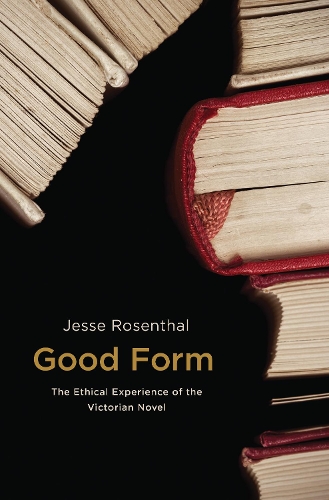
Good Form: The Ethical Experience of the Victorian Novel
(Hardback)
Available Formats
Publishing Details
Good Form: The Ethical Experience of the Victorian Novel
By (Author) Jesse Rosenthal
Princeton University Press
Princeton University Press
27th February 2017
United States
Classifications
Tertiary Education
Non Fiction
Literary studies: fiction, novelists and prose writers
823.809
Physical Properties
Hardback
272
Width 152mm, Height 235mm
567g
Description
What do we mean when we say that a novel's conclusion "feels right" How did feeling, form, and the sense of right and wrong get mixed up, during the nineteenth century, in the experience of reading a novel Good Form argues that Victorian readers associated the feeling of narrative form--of being pulled forward to a satisfying conclusion--with inn
Reviews
"This book is itself very good at illuminating matters half-known, pointing out things about the Victorian novel that the reader might already have been aware of, but rendering them newly interesting... In an exhilarating series of conceptual connections, the brilliant final chapter on George Eliot's Daniel Deronda moves from exploring the development of statistics, to the psychology of gambling, to new close readings of Eliot's narrative complications..."--Kirsty Martin, Times Literary Supplement "At once familiar and original, brilliant and intuitive, Good Form ... will inform studies of narrative well beyond the temporal boundaries of the Victorian period."--Jonathan Farina, Wordsworth Circle
Author Bio
Jesse Rosenthal is assistant professor of English at Johns Hopkins University.
